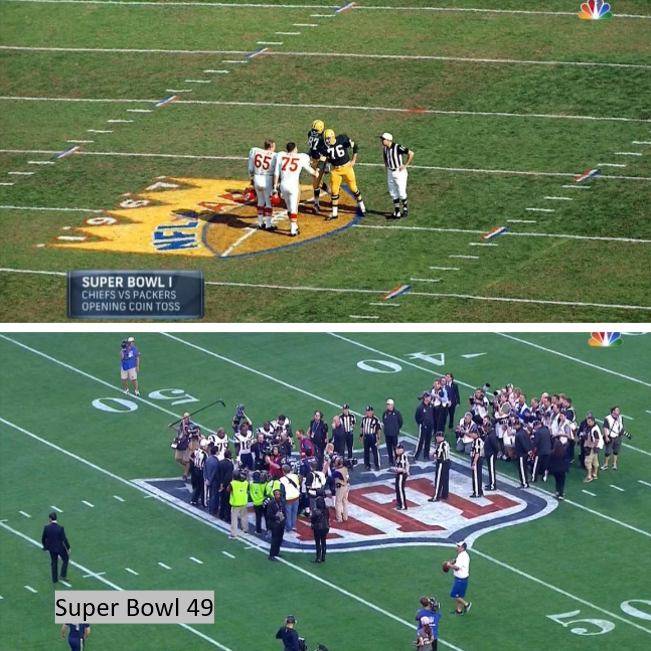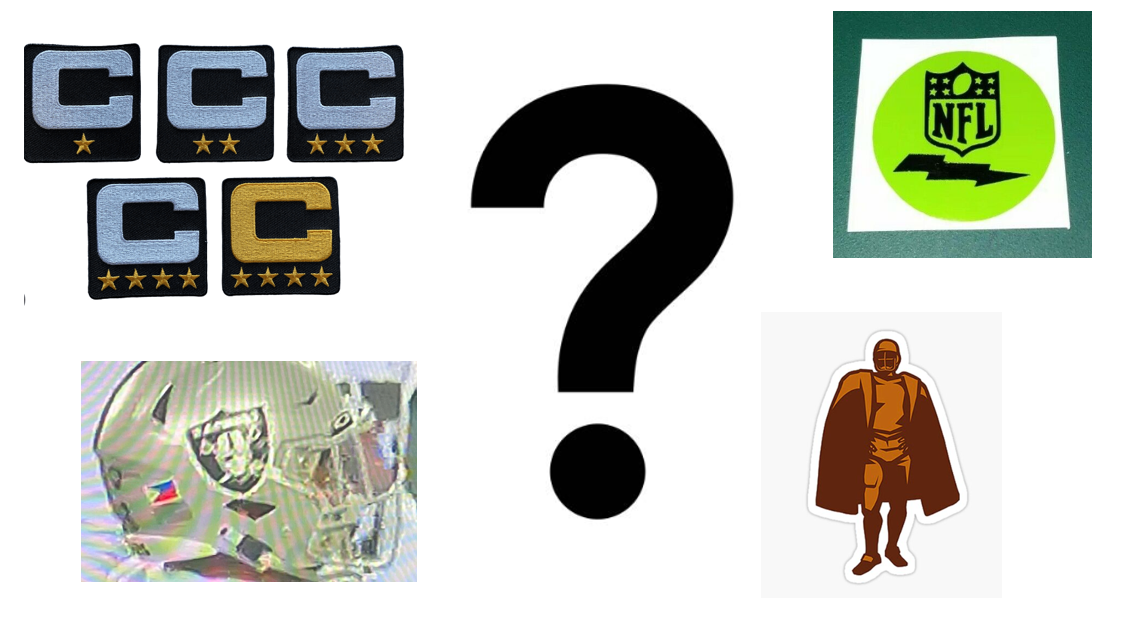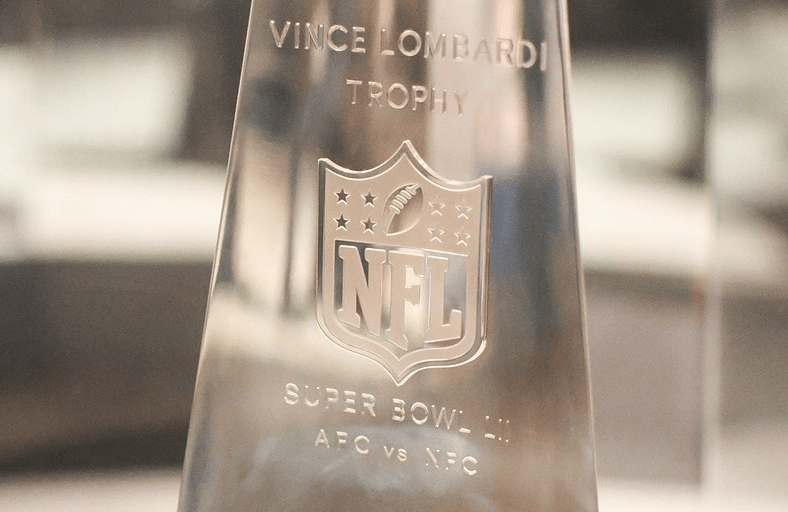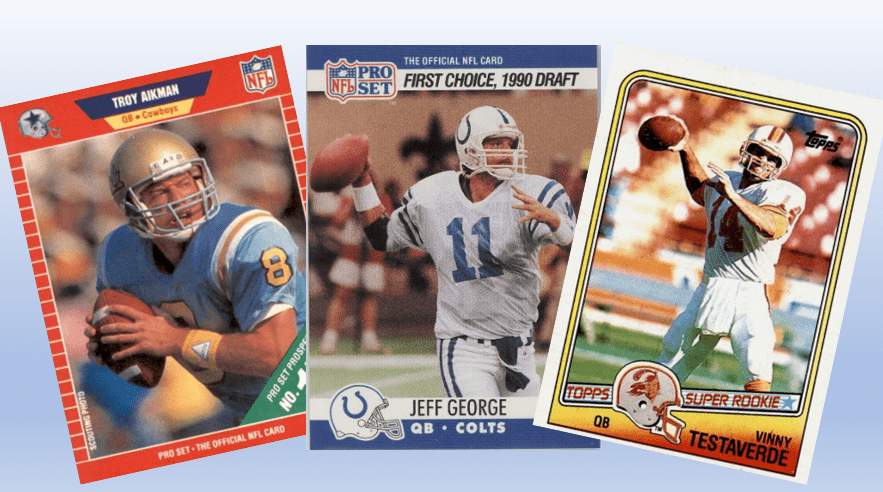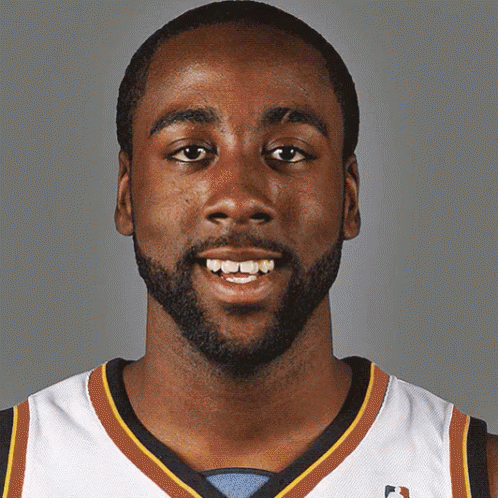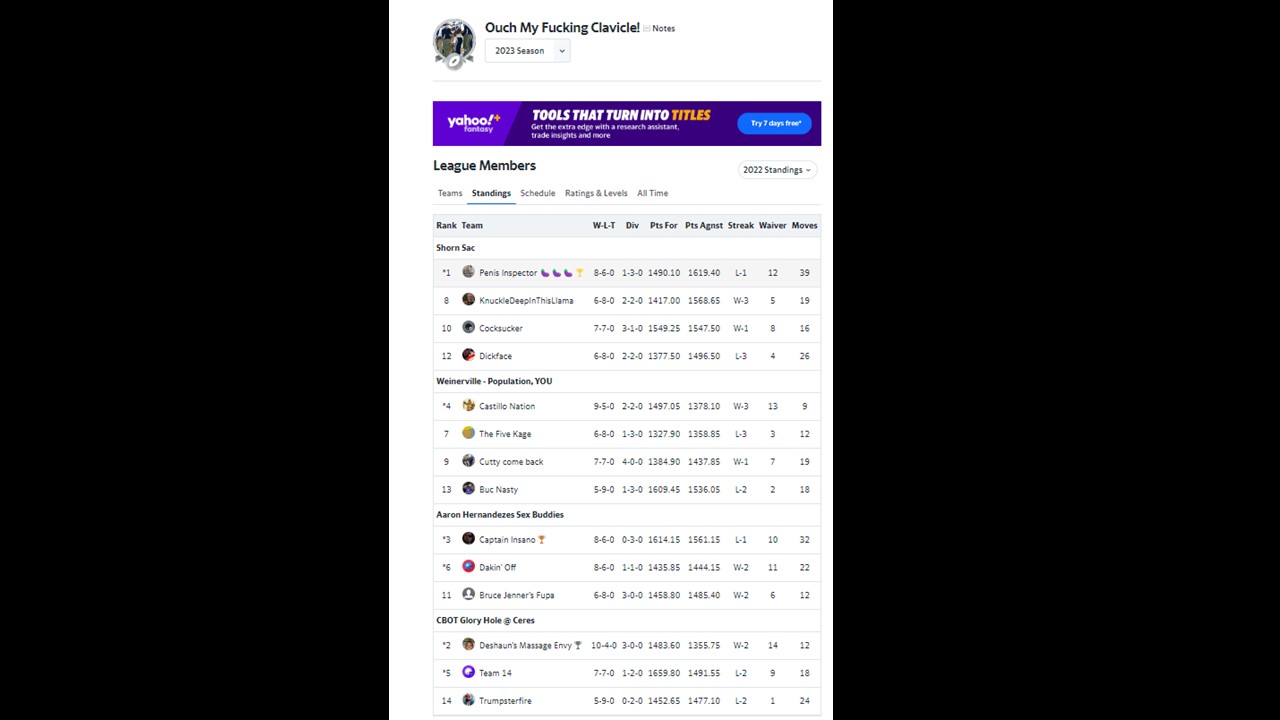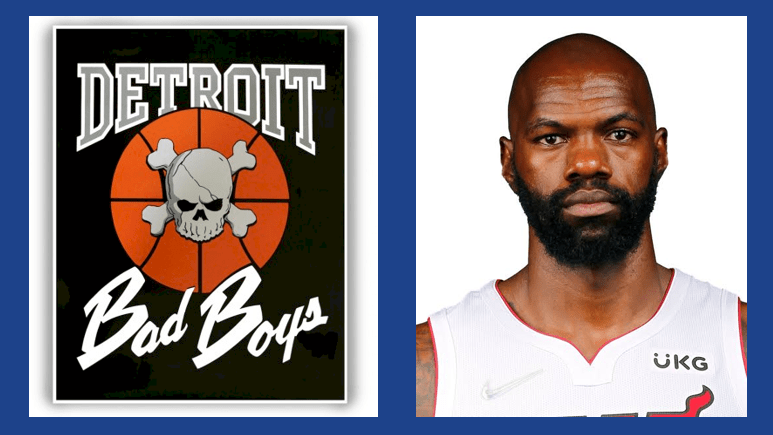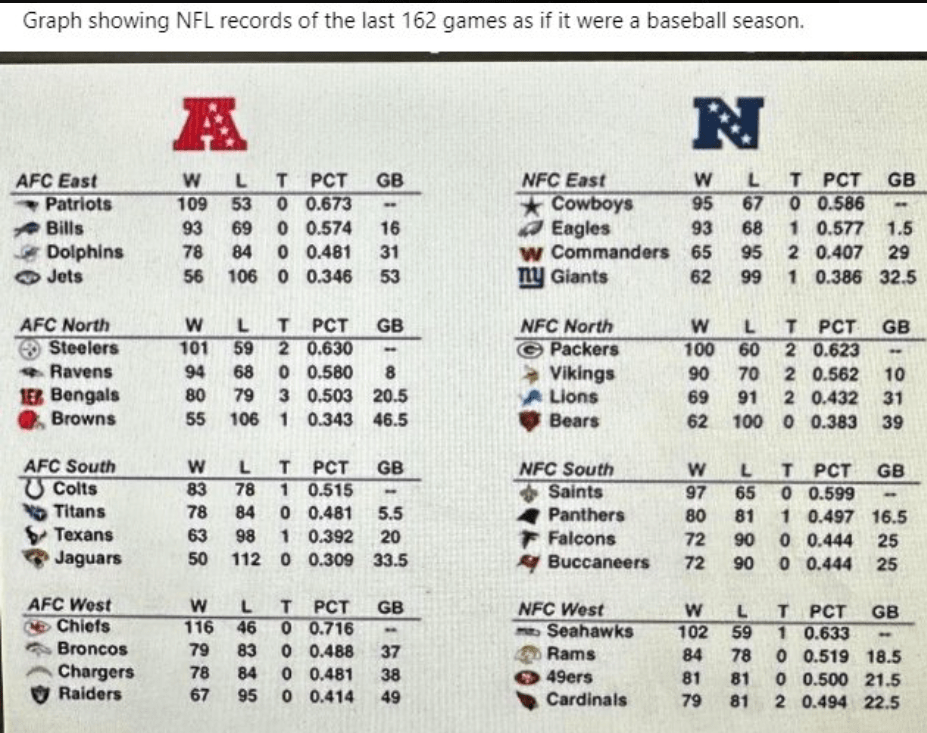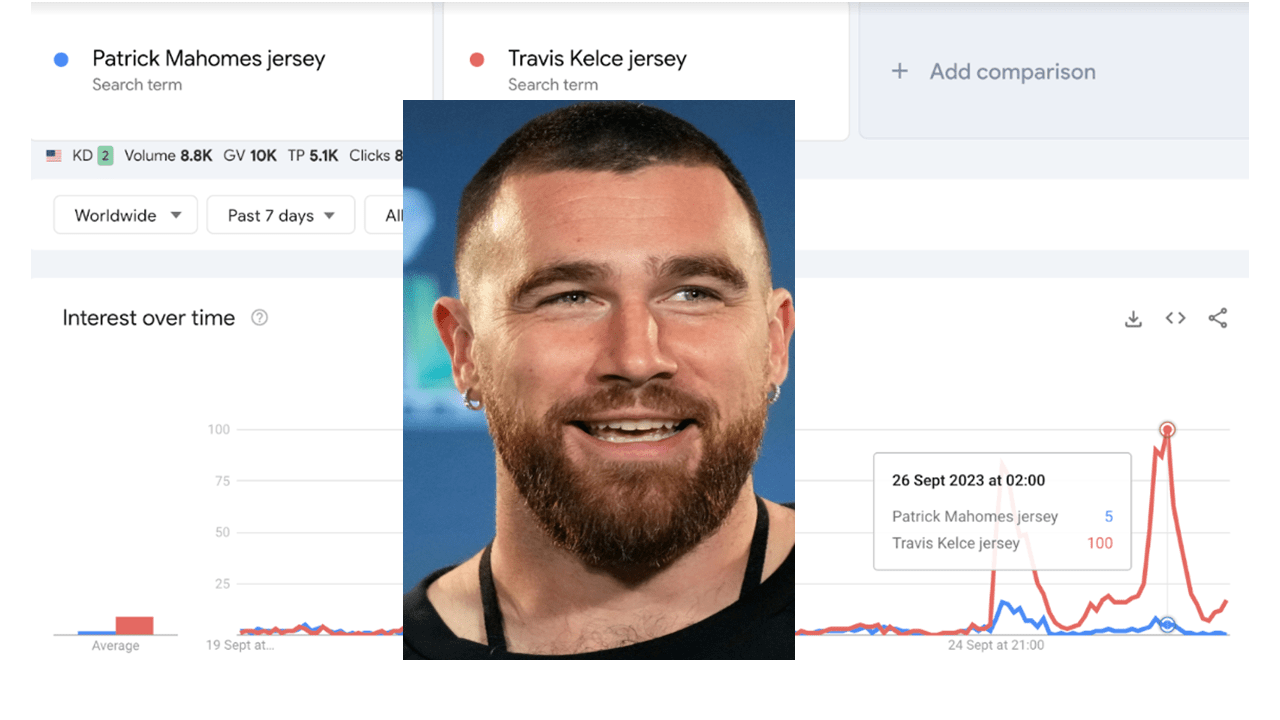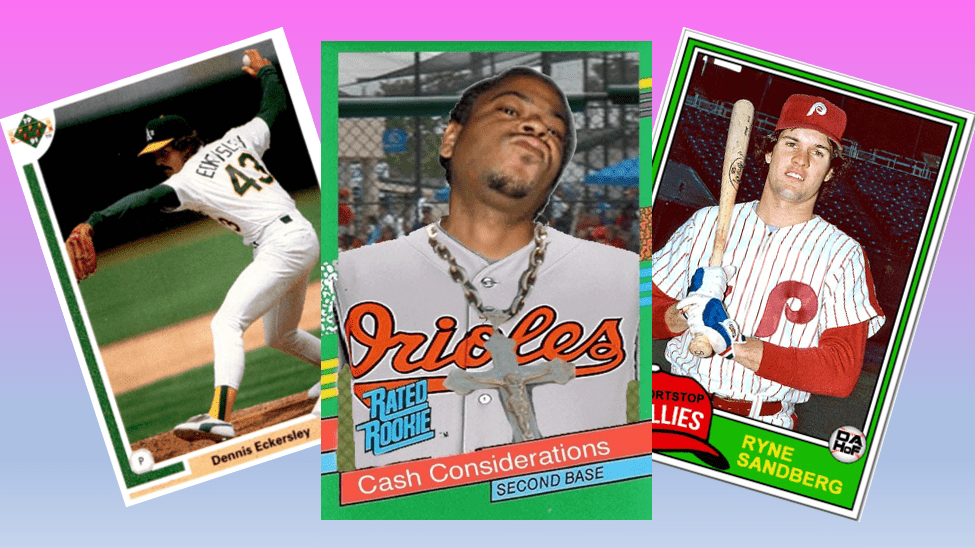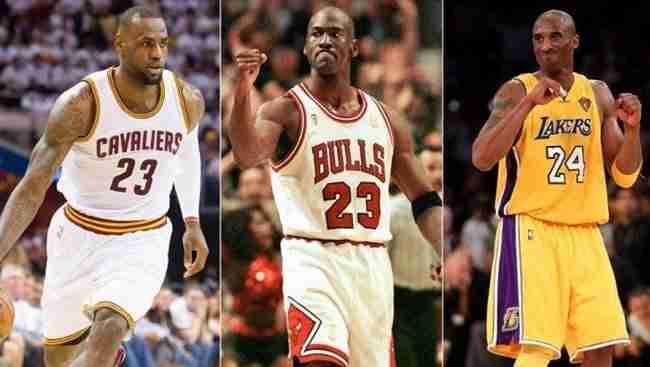
For as much as we hear the Michael Jordan vs. LeBron James comparison as the best NBA players ever, is LeBron even better than Kobe? 3 titles vs. 5 is all I have to say about that.
“Is LeBron the best basketball player of all-time?” Thanks to 8 Finals appearances in a row, this question gets asked any time a media outlet needs a boost in pageviews.
RELATED – Can Michael Jordan STILL DUNK?”
Picking the best basketball player of all time is easy – it’s Michael Jordan.
Not only did MJ change the way the game was played (just like Wilt), but he made an equal impact on popular culture as a whole (like Shaq).
The gold chain. Baggy shorts. The single diamond earring. The bald head. Air Jordan’s. The concept of “basketball shoes” barely existed and weren’t even seen as a specialty industry.
What’s the criteria for greatest? Championships? Individual accolades? I think those are two places to start.
RELATED – Michael Jordan Wizards: Last Season Was Better Than You Remember
Era has to be considered. Somewhere, there’s an 80-year old saying George Mikan was the best ever.
A few other reasons why MJ is the best basketball player ever:
- Era and timing of arrival in NBA – Magic and Bird were winding down their careers as Jordan was ascending.
- Rise of technology/internet coincided with his success so more people saw him, or had access to him than any player prior.
- Early struggles. He broke his foot and missed almost an entire season. The Bulls were not a great franchise and he made them one.
- Success across all disciplines in basketball. Pick a certain skill and he was great at it. A true all around player.
- Nike – cultural impact, great marketing made MJ into a Paul Bunyon type figure.
- Performance at the most critical times, biggest stages. Game winning shots, the Flu Game, eradicating the NBA of the Pistons, etc.
- Winning titles after baseball experiment. Michael Jordan playing baseball on a whim was incredible.
- NEVER a down year, no decline. Even as he aged, his final seasons in Washington as Michael Jordan Wizards were still productive.
But what’s really difficult is picking not only the second best NBA players of all time, but how they rank behind MJ.
Everything from era of play, position, and impact upon the game has to be considered.
RELATED: Michael Jordan Baseball: MJ’s Only Game In MLB
Here are the most viable 16 best NBA players ever that could be the second best NBA player of all-time, in no particular order;
Kobe Bryant– Career Averages: 25.0 ppg, 5.2 rpg, 4.7 apg
Bryant is a 18-time all-star, 11-time All NBA first team, 9-time All NBA Defensive first team, led the league in scoring twice, won the MVP award once, two-time Finals MVP, two-time NBA scoring champ, the All-Star Game MVP four times, 1997 NBA Slam Dunk champion, and won five NBA titles. HIs numbers 8 and 24 have both been retired by the LA Lakers.
Wilt Chamberlain– Career Averages: 30.1 ppg, 22.9 rpg, 4.4 apg
“The Big Dipper” is the only player to ever average 40 ppg or 50 ppg for an entire NBA season. In 14 seasons be played in 13 all-star games, won seven scoring titles, led league in field goal percentage nine times, won 11 rebounding titles, and even led the league in assists in 1967-68. Chamberlain won two NBA titles which weren’t enough for most of his detractors, claiming this proved he as more concerned with individual success. Wilt was on par with MJ as far as influence felt off the court, becoming a best-selling author and starring in “Conan the Destroyer” opposite Arnold Schwarzenegger.
Bill Russell– Career Averages: 15.1 ppg, 22.5 rpg, 4.3 apg
Five time NBA MVP, 12 time all-star and 11 time NBA Champion in 13 NBA seasons. His 11 titles are tied for most ever by an athlete in any North American sports league. Russell is known historically as a defensive specialist and elite shot blocker, but still averaged 15.1 ppg in 963 games.
Tim Duncan– Career Averages: 20.6 ppg, 11.4 rpg, 3.1 apg, 1.9 bpg
“The Big Fundamental” is a 13 time all-star, has won two MVP awards, three NBA Finals MVP awards and four NBA titles. Has also made the NBA All-Defensive team eight times. Interestingly, Duncan has never led the league in any individual category.
Oscar Robertson– Career Averages: 25.7 ppg, 7.5 rpg, 9.5 apg
“The Big O” as many people know is the only player in NBA history to average a triple double for an entire season as he did in 1961-62. But what’s really interesting is that he almost did it for an additional four seasons. In 1960-61 he was .03 assists per game short. In 1962-63 he was .05 assists per game short. In 1963-64 he was just .001 rebounds per game short. In 1964-65 he fell one rebound per game short. Meanwhile he averaged over 30 ppg per season which to me is maybe the most remarkable five year span an NBA player ever had. Robertson was a 12 time all-star, won one MVP award and one NBA title. Equally important was his lawsuit against the NBA which made free agency possible.
Shaquille O’Neal– Career Averages: 23.7 ppg, 10.9 rpg, 2.3 bpg, 2.5 apg
“The Diesel” has been a 15 time all-star. The two time NBA scoring champion has won four NBA titles, three NBA Finals MVP awards, three All Star game MVP awards and the regular season MVP award in 2000. The Shaq we saw at the end of his career is a far cry from the “Kazaam” era of dominance, but he has had a huge impact on culture as a whole in the vein of MJ or Wilt thanks to his off the court pursuits (music, movies, tv, etc) that was equally important.
“Dr. J” Julius Erving– Career Averages: 24.2 ppg, 8.5 rpg, 1.7 bpg, 4.2 apg, 2 spg
“Dr. J” was MJ before MJ. At 6-7, 210 lbs he introduced the NBA to a more athletic style of play that centered around his leaping ability. While everyone has seen the highlights of his free throw line dunk in the ABA dunk contest, or “rocking the baby” and dunking on Michael Cooper and similar athletic feats, Erving was about as well rounded as any player of his era. Between the NBA and ABA, Erving won three championships, four MVP awards and was a 16 time all-star in 16 professional seasons.
Kareem Abdul-Jabbar– Career Averages: 24.6 ppg, 11.2 rpg, 3.6 apg, 2.6 bpg
The NBA’s all-time leading scorer led the league in scoring twice, rebounds once and blocks four times. The 19 time all-star won six NBA titles, was a six time MVP (the NBA record) and a two times Finals MVP. At the time of his retirement Abdul-Jabbar led the NBA in almost every significant category; points, games played, minutes played, field goals made, field goal attempts, blocked shots, defensive rebounds, and fouls. Jabbar was also the proprietor of the most devastating and unstoppable offensive move ever; the “Sky Hook.”
Magic Johnson– Career Averages: 19.5 ppg, 11.2 apg, 7.2 rpg, 1.9 spg
Magic Johnson took the standard that Oscar Robertson set as a big point guard and advanced it even further. At 6-9, it was absurd at the time to think he was running the point when at that height he could’ve played center or power forward for most NBA teams. Magic made it to the Finals nine times in 13 pro seasons, winning five NBA titles. A three time NBA Finals MVP, he was also a three time regular season MVP and 12 time all-star.
Larry Bird– Career Averages: 24.3 ppg, 10.0 rpg, 6.3 apg
The thing about “Larry Legend” compared to the other players on this list he never had a bad season even as he aged, averaging 20.2 ppg in his final season. In 13 pro seasons he only averaged under 20 ppg two times (19.3, 19.4). Bird was a three time NBA champion, two time NBA Finals MVP, the MVP of the All-Star game once and a 12 time all-star.
Hakeem Olajuwon– Career Averages: 21.8 ppg, 11.1 rpg, 3.1 bpg, 2.5 apg, 1.7 spg
Olajuwon won two NBA Championships and appeared in a third. In 18 seasons he was a 12 time all-star, two time NBA Finals MVP and two time Defensive Player of the Year. In 1993-94 Olajuwon became the only player in NBA history to win the MVP, Defensive Player of the Year and Finals MVP all in the same season. Olajuwon is also the NBA’s all-time leader in blocked shots.
Bob Cousy– Career Averages: 18.4 ppg, 7.5 apg, 5.2 rpg
Cousy led the NBA in assists for eight straight years from 1952 to 1960. The “Houdini of the Hardwood” changed his position in a way that Wilt Chamberlain or Oscar Robertson changed the center or forward positions, respectively. In his 14 year career he was a 13 time all-star, won six NBA titles, one MVP, and two All-Star Game MVP’s. Cousy’s ability to dribble the basketball was unprecedented to that point in the NBA’s development. The speed at which he played the game, and success he had, dictated a complete overhaul in the style of play that was dominant at the time. In 1954 Cousy organized and served as president of the NBA Players association until 1958. The NBA was the first of the four major sporting leagues to start a trade union and Cousy was the instigator.
Karl Malone– Career Averages: 25.0 ppg, 10.1 rpg, 3.6 apg, 1.4 spg
In 19 seasons Malone was an all-star 13 times. A two time MVP of the regular season, he was also the MVP of the All-Star Game twice as well. The greatest knock on Malone is that he never won an NBA titles, though he did appear in the Finals three times. Malone scored the second most points in NBA history. Malone averaged 20+ points a game for 17 straight seasons and retired at the age of 40.
Jerry West– Career Averages: 27.0 ppg, 6.7 apg, 5.8 rpg
“Mr. Clutch” was so valuable to his era that the current NBA logo is modeled after his silhouette. West led the NBA in scoring once and assets one time as well. In 14 seasons he was an all-star every season and was on the NBA All-Defensive team four times. He won one NBA title, one NBA Finals MVP award and one NBA All-Star Game MVP. After retiring as a player he became the Lakers GM prior to the 1983 season and won three titles in the next six years. But in his most masterful work in the same offseason he traded for Kobe Bryant, signed free agent Shaquille O’Neal, and signed coach Phil Jackson. The rest is NBA history.
David Robinson– Career Averages: 21.1 ppg, 10.6 rpg, 3.0 bpg, 2.5 apg, 1.4 spg
“The Admiral” was an all-star 10 times in 14 seasons led the league in rebounds once, blocks once and won one scoring title. In the 1993-94 season Robinson and Shaquille O’Neal were going head to head for the scoring title down to the final game of the season. In that game, Robinson scored 71 points to secure the title. Robinson won two NBA titles, an MVP award and an NBA Defensive Player of the Year award.
LeBron James– Career Averages: 27.6 ppg, 7.2 rpg, 6.9 apg, 1.7 spg, 0.8 bpg
Stephen Curry – Career Averages: 23.5 ppg, 5.3 rpg, 5.2 apg, 1.7 spg, 0.2 bpg
Best shooter ever? Probably. Though his teammate Klay Thompson would have something to say about that. Curry has redefined the game – traditional shooting form has been torn asunder by kids trying to emulate his style, never understanding that the reason it works for him is because he mastered the fundamentals.
Based on feedback about the best NBA players ever, the consensus for second greatest NBA player ever is its Wilt, then Kareem; do any of these players usurp the title of “Second Greatest Ever” from Wilt??

